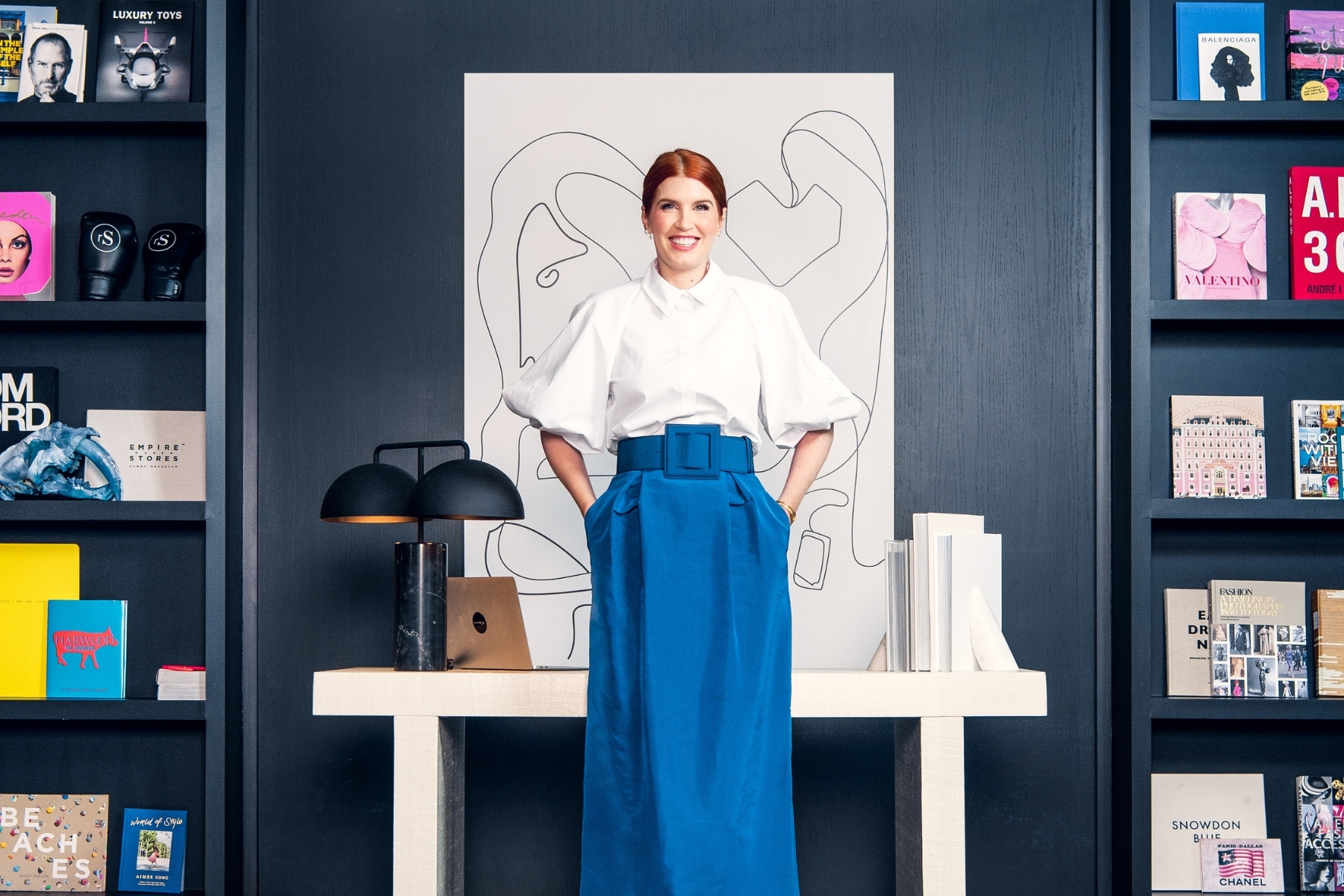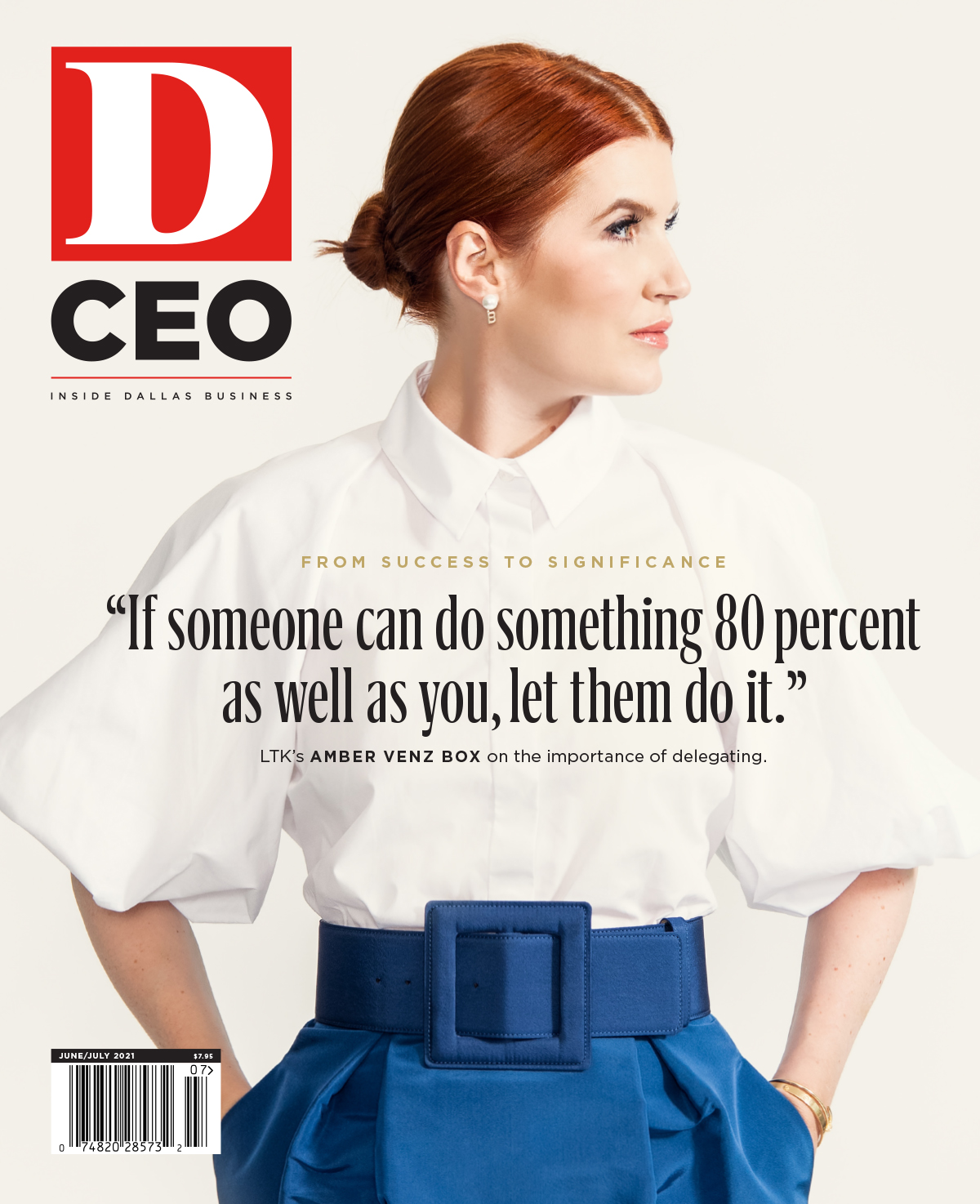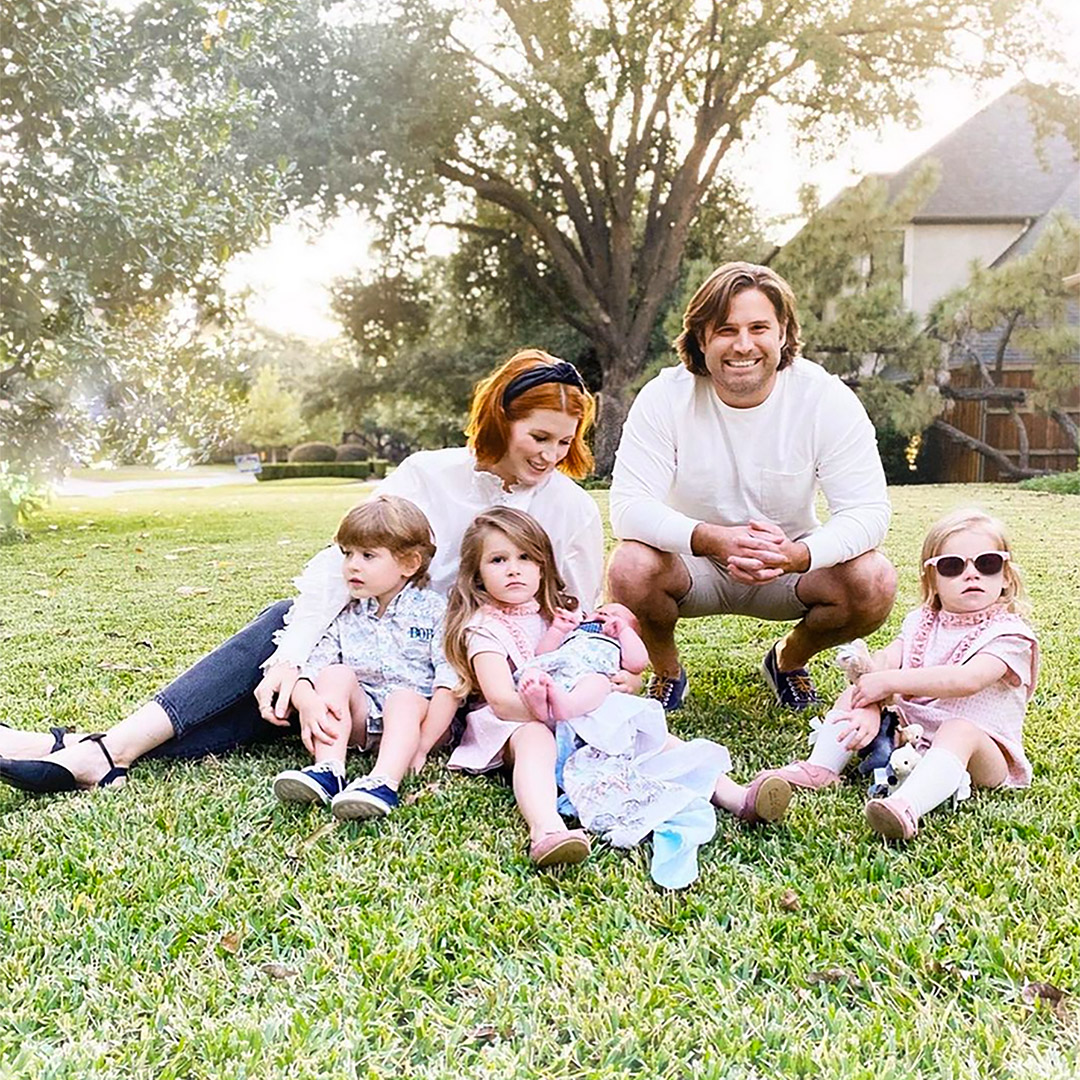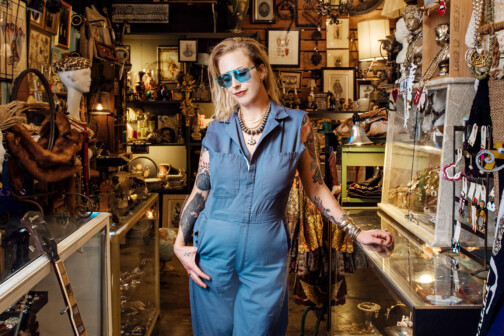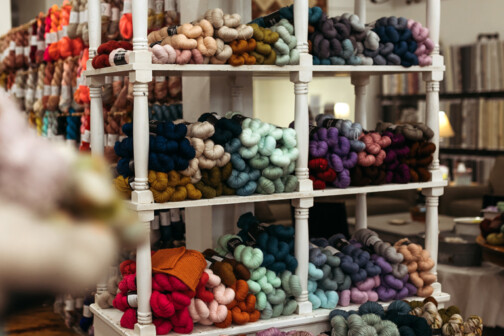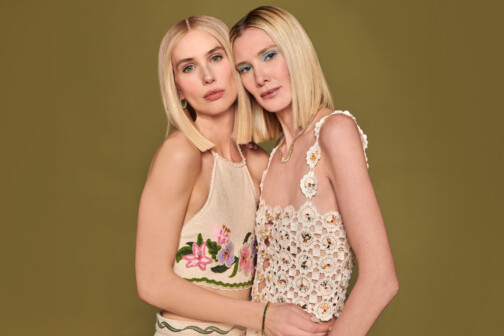Amber Venz Box was just 23 years old when she pioneered influencer commerce with rewardStyle. Ten years, billions in sales, and four children later, she’s now upending the service industry with a new venture—while also launching a second side business and setting up her original company for mind-boggling growth.
One by one, Amber Venz Box listened to the social entrepreneurs tell their stories. It was April 2017, and she was serving as a judge of The Pitch, United Way’s first Shark Tank-style competition. It was about six years into the launch of her company, rewardStyle, and her hard work was paying off. Social media stars and global brands were flocking to her influencer commerce platform, and she was a darling of the tech press.
On stage at The Bomb Factory, social innovators, battling for a $75,000 grant, shared how they were helping women in poverty, offering second chances to juvenile offenders, bringing fresh produce to families in need, or giving hope to unemployed individuals through free IT training. It was a wake-up call for the 20-something entrepreneur. “It made me realize that I had been so heads-down, working on our business, and had not been doing anything philanthropically in Dallas or even understood what the needs were,” Venz Box says. “I left a changed person.”
She was especially shaken by what she had learned about childhood poverty in Texas. She asked United Way chief Jennifer Sampson to guide her through Dallas’ foundation and social impact ecosystem. Those conversations ultimately fed into the launch of Cherry, an on-demand platform for nail technicians who do manicures in clients’ homes, offices, or hotels. (Think of it as the Uber of nailcare.) Attracting investors like fellow SMU grad Whitney Wolfe Herd, founder and CEO of Bumble, and BeautyBio’s Jamie O’Banion, Cherry was founded on two beliefs: first, people will continue to crave convenience; second, the value will continue to be more directly transferred between the value giver and value receiver. It also helps eliminate inefficiency and waste. Traditionally, nail techs are required to be in the salon for set work hours. But they’re only paid for the services they provide—often half or less of what the customer is charged, Venz Box says.
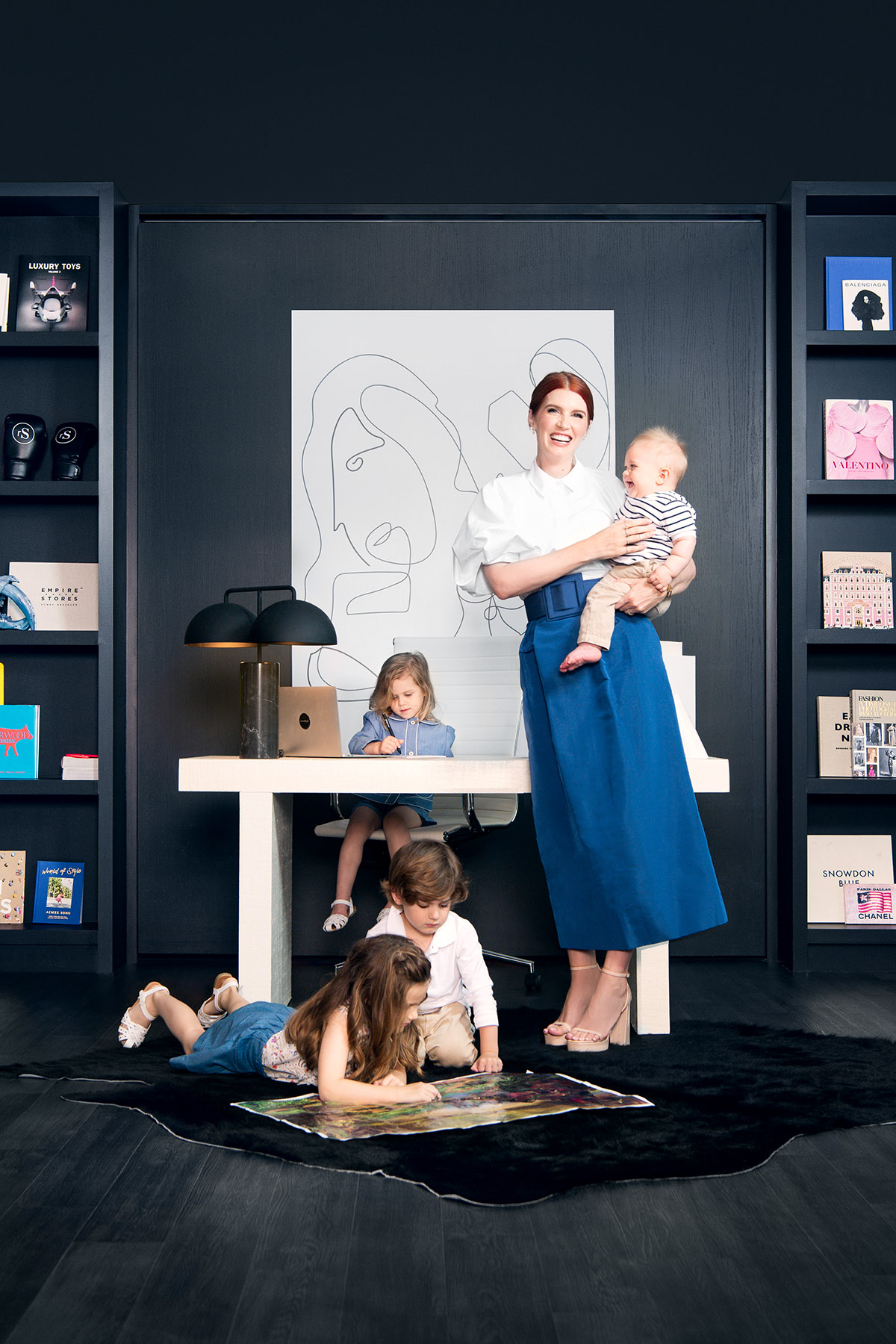
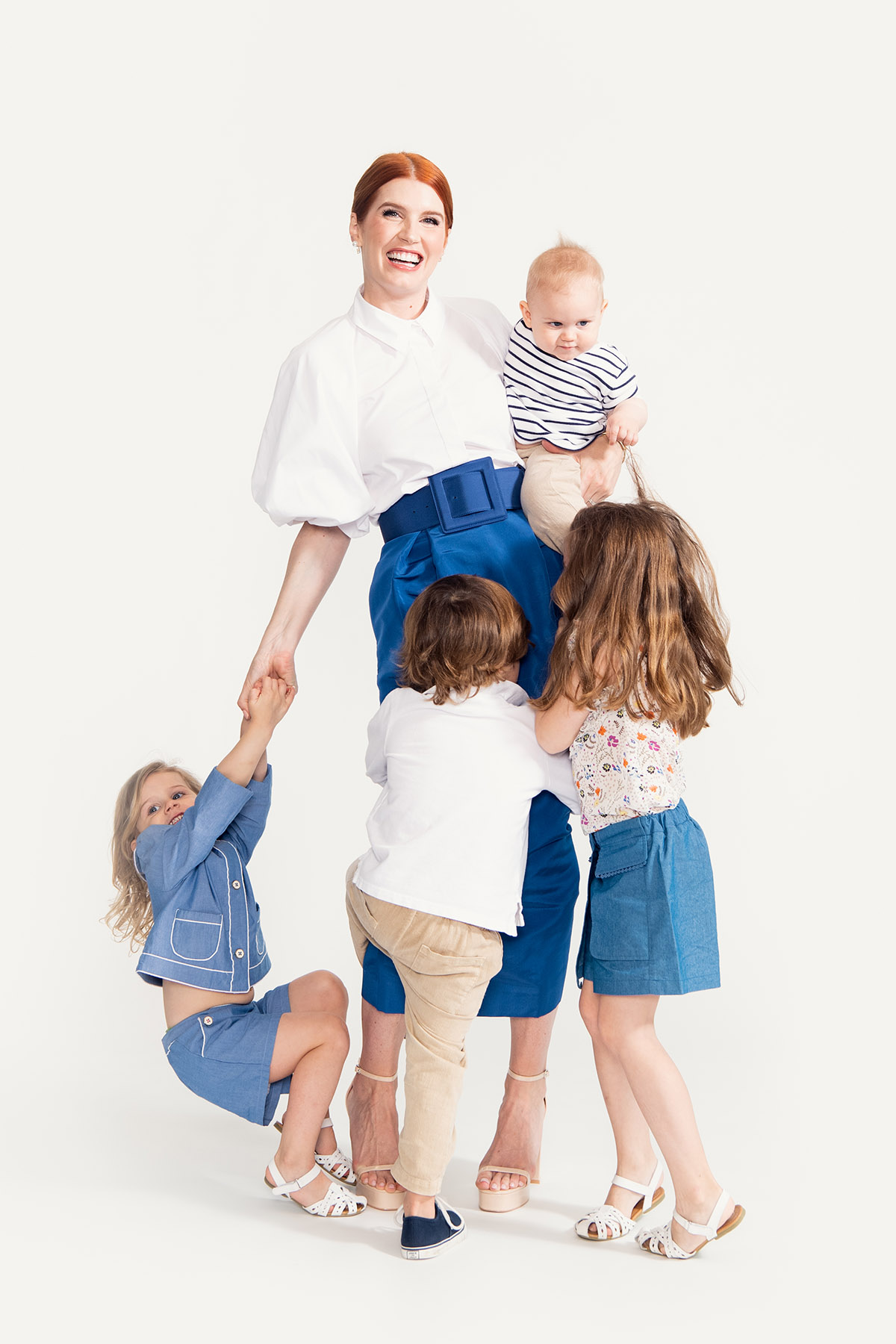
She points out that Dallas has one of the nation’s worst rates for childhood poverty and that many of those children are being cared for by single mothers. “Our desire was to lean into that issue and provide higher-paying opportunities for these single mothers and give them a flexible schedule,” Venz Box says. “We figured out a way to pass along the majority of the transaction to them and build in tipping and make everything cashless. We’re building their business, they’re building their business, and it’s all on a platform that we provide to them for free.” The app has a five-star rating with 1,700 reviews, and customers are tipping at an average of 23 percent.
So far, about 125 nail techs are providing services through Cherry. They’re earning about two times the national average, Venz Box says. She and her team recently hosted a conference at Reunion Tower to spread the word and provide education on entrepreneurship. They also launched Cherry business pages for the techs, so they can build their own companies on the platform. Starting in Dallas, then expanding to Austin and Houston, Cherry recently secured approval to operate in all of Texas, with plans to expand into other states. The prospects for disrupting the industry are huge. “It’s rethinking the whole salon model and how that should work,” Venz Box says.
Through funding from Ashlee and Chris Kleinert, United Way is one of Cherry’s biggest backers. It’s the organization’s first social impact investment in a for-profit venture. Cherry checked all of the boxes, Sampson says. “First, it’s an investment that will benefit women and put them on a path to economic mobility and financial independence,” she says. “And second, we thought it would become profitable and that whatever the return on the investment would be, it could recycle back into the fund and allow us to do more of these kinds of investments in the future.”
Like rewardStyle and its LIKEtoKNOW.it app, Cherry empowers women to build their own enterprises and have more control over their working lives. It’s also helping Venz Box with one of her biggest goals: moving from success to significance.
None of this, of course, was on her mind as a pre-teen fashionista copying the looks of her idols, Mary-Kate and Ashley Olsen. A quiet introvert, she liked the attention she’d get from teachers and others for the outfits she put together. Before long, fashion became a way for her to earn money, too. She’d knit scarves in class and sell them to friends. Being an entrepreneur was something her father always encouraged. He’d point out that he never missed her brother’s baseball games and was always home in time for dinner. “If you want to be involved in your family’s lives,” he’d say, “the way you do that is by owning your own business.”
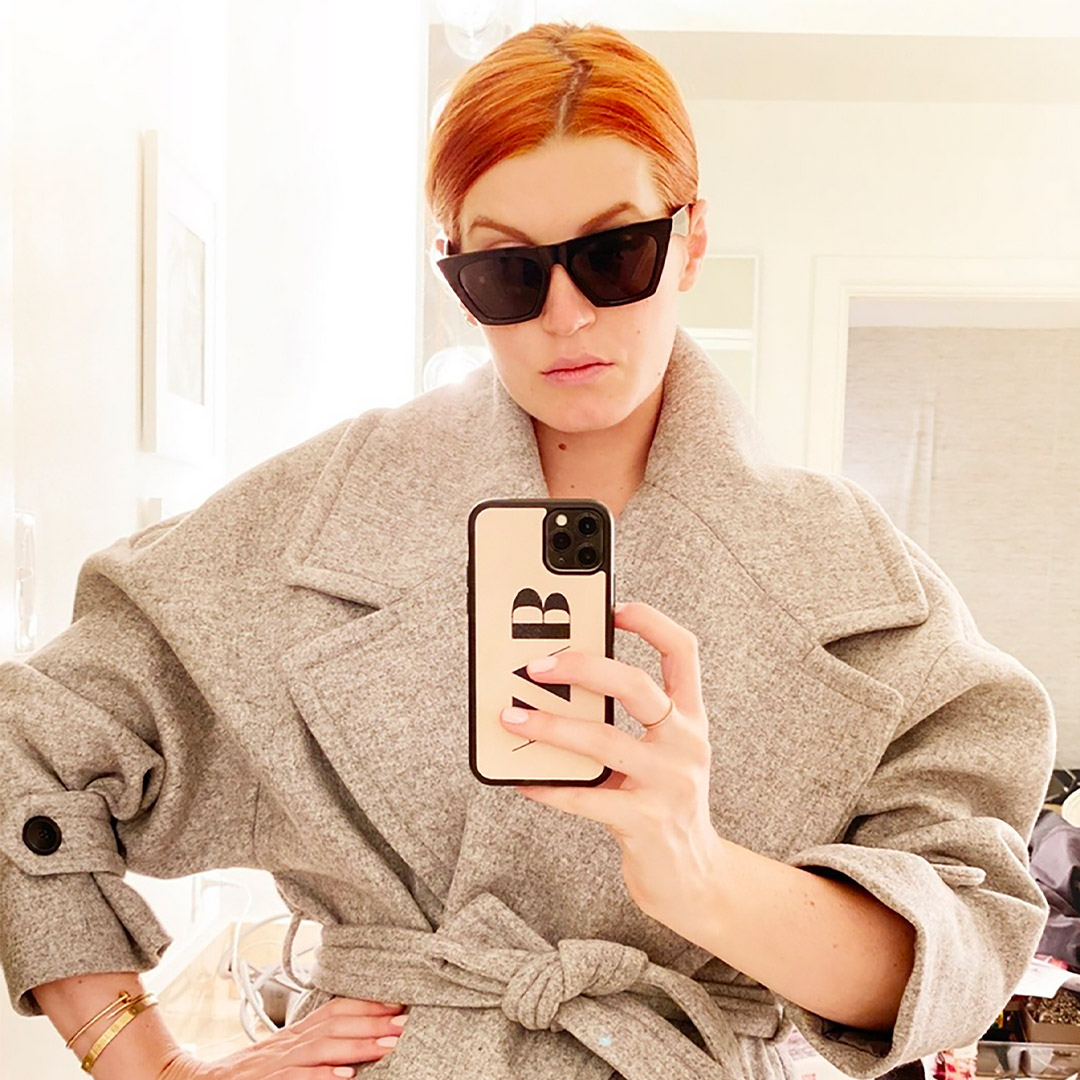
By the time she was in high school, Venz Box had moved on from the Olsen twins to Jessica Simpson. She became especially obsessed with a pair of earrings the performer wore—gold hoops with a little crystal in the middle. Studio Sebastian in Snider Plaza sold them, but at $125, they were way outside her means. So, Venz Box studied the earrings and figured out a way to make them on her own. Soon, she began selling jewelry knockoffs to friends and creating her own designs.
After high school, she enrolled at SMU and landed a dream job at Sebastian’s. A co-worker there often tried to set Venz Box up with her nephew. But the college freshman was busy with school and her jewelry business and wasn’t interested. Then, one New Year’s Eve, her co-worker talked her into going to a party hosted by one of her nephew’s friends. Venz Box went to the nephew’s house to pick up a ticket for the event. It turned out that Baxter Box lived just one street away, in a home with the same floor plan and on the same spot of the street as hers. They were four years apart, so their paths had never crossed at Highland Park High School.
It wasn’t until she and Box reconnected at a graduation party a few months later that they began dating. Venz Box was an undergrad, still at Sebastian’s, and still making jewelry. Baxter, who earned a degree in engineering from the University of San Diego, was in grad school at SMU and investing in the startup space. One afternoon, he looked over her shoulder at a spreadsheet she was working on and saw how much money her jewelry business was raking in. He encouraged her to make her side gig a full-fledged business and offered to help set it up.
The jewelry venture flourished, but Venz Box began to miss the connection with fashion that came from putting together looks for customers at Sebastian’s. She started doing personal shopping, earning commissions from stores for pieces her clients purchased. Her following grew through VenzEdits, a blog she created, and her fans began emailing her to thank her for her tips and share pics of purchases they’d made based on her recommendations.
Venz Box realized she was cutting herself out of the transactions. “My business had moved online, but my business model had not,” she says. And with that, the idea for rewardStyle was born.
The concept was simple but revolutionary: use technology to help fashion bloggers monetize their content. Through rewardStyle, co-founded with Baxter, Venz Box created a way for influencers to link their posts to various retailers, who would pay commissions (to both bloggers and rewardStyle) for sales generated by their posts. After lining up a handful of influencers, it was time to get retailers on board. One of Venz Box’s first calls was to Shopbop. It was an early adopter of online retail and had fairly robust offerings even back in 2011 when the industry was still in its infancy. The 23-year-old was persuasive, and Shopbop agreed to test the platform. That one “yes” sustained rewardStyle through the “million no’s” that followed, Venz Box says.
Luxury retailers didn’t understand the influencer movement, which was just beginning to emerge. “One exec told Venz Box, ‘I kind of get what you’re saying, but we work with models and magazines. If I told my boss I was going to pay a girl who takes pictures of herself in an alley, I would lose my job.”
The young entrepreneur was relentless, leveraging every possible connection. She once got a meeting with an exec at Net-a-porter in London through an intern’s boyfriend’s sister, who was roommates with a girl who did design work for the company. But then the Shopbop numbers started to come in, and Venz Box had a real story to tell.
In 2014, she and Baxter got married. A year later, the couple had their first child, and rewardStyle secured $15 million in funding on a $290 million valuation. Everything went into hyperdrive. Influencers began flocking to the platform, and, suddenly, retailers and brands were all-in.
In 2016, Venz Box was invited to speak at SXSW in Austin and was given a coveted spot in the lineup: immediately following former President Barack Obama. “Here I was, a pregnant girl with curled hair and false eyelashes, telling a bunch of tech guys and investors in the room about influencer marketing,” she says. At the conference, she and Baxter met executives from Chappy, a New York-based image-recognition software startup. The Boxes acquired the company and developed an app called LIKEtoKNOW.it, which influencers can use to create shoppable content on walled-garden platforms like Instagram. It was another game-changer.
Today, the platform has grown from Venz Box’s single blog to an operation involving more than 100,000 influencers. More than 100 of them have become millionaires through commissions earned via their LIKEtoKNOW.it shops. Among the most successful is Wendy Nguyen of Wendy’s Lookbook in New York. She aligned with rewardStyle in 2012; today, she has more than 2 million followers.
“What Amber and her team developed was incredibly novel,” Nguyen says. “She also gathered all of us bloggers together and created a community so we could share best practices. We went from chatting on forums with just bits of information to becoming and being viewed as individual content creators. [rewardStyle] gave us the opportunity to be in control of our monetization. It empowered us.”
Noting her innovation and impact, Dallas Fed Chief Rob Kaplan asked Venz Box to serve on one of his advisory boards. She, in turn, asked him to help introduce her at an October 2020 event at SMU, when she was presented with the school’s Emerging Leader award. Venz Box, he said, “uniquely understands key populations. Her business creates opportunities for people to be successful who might not otherwise be in the workforce. And I think in that regard, she has changed the landscape.”
As it enters its second decade, Venz Box’s operation continues to evolve. It has hired 50 people in recent months, bringing the total to about 300, and has another 50 positions to fill. It also invested in tech updates to the app, such as LTK Shopping Video and LTK Search. And on July 1, rewardStyle and its LIKEtoKNOW.it app will rebrand as LTK.
Even as the company continues to focus on building its influencers’ businesses, Venz Box sees significant opportunities with brands. LTK currently works with about 5,000 retailers that represent 1 million brands. Brands are now establishing their own LTK shops, independent of retailers.
“Our client base on the brand side is growing dramatically,” Venz Box says. “It’s exciting to see what brand entrepreneurs are able to do when they plug into the LTK platform and have the power of a direct-to-consumer business, versus waiting on a larger player to market their goods.” Last year, shoppers made $1 billion in purchases via the LTK app. Based on midyear figures for the trailing 12 months, that number has jumped to $2.8 billion.
Along with super-charging LTK and launching Cherry and The Local Chapter (see sidebar on page 45), the Boxes, in the past five years or so, have become a family of six. There’s Birdie, who’s 5; Boyce, 4; Bizzy, 2; and Boots, eight months. Even more impressive, the couple has found a way to make it all work. It starts with setting boundaries, Venz Box says. She and Baxter also learned it was important to have clear lines of responsibility within the business. These days, she typically works from home while he heads to the office.
A bigger adjustment was learning to hand off tasks to others. “I hit my own ceiling,” Venz Box says. “An inability to delegate is going to stop anyone from growing beyond a certain point. A mentor told me, ‘If someone can do something 80 percent as well as you, let them do it.’” And so, she does. Venz Box gets the children ready and fed every morning and packs them in the car for school. Her home team takes it from there. She and Baxter block off nights (until the kids are in bed) and weekends for family time.
As she reflects back on her company’s decade in business, she says the influencer movement is still in its infancy. She credits Baxter with helping her focus on strategy and crafting a vision for the future. “As a founder, you have to be a futurist,” she says. “You have to figure out how to ride the wave—and not just try to paddle faster than everyone else.”
Getting Away From It All
Many DFW execs have lake houses or mountain homes. The Boxes have a small community of yurts in the Chihuahuan Desert.
After raising $15 million in Series A funding in 2015, the growth of rewardStyle really began heating up. Venz Box and her husband, Baxter, traveled the world, trying to win business from major brands and retailers. But after two years of constantly trekking from China to Dubai to Paris and other markets, the couple realized the pace was not sustainable. “We used to work nights and weekends—we lived for work,” Venz Box says. “We needed to build in some family time and some rest.”

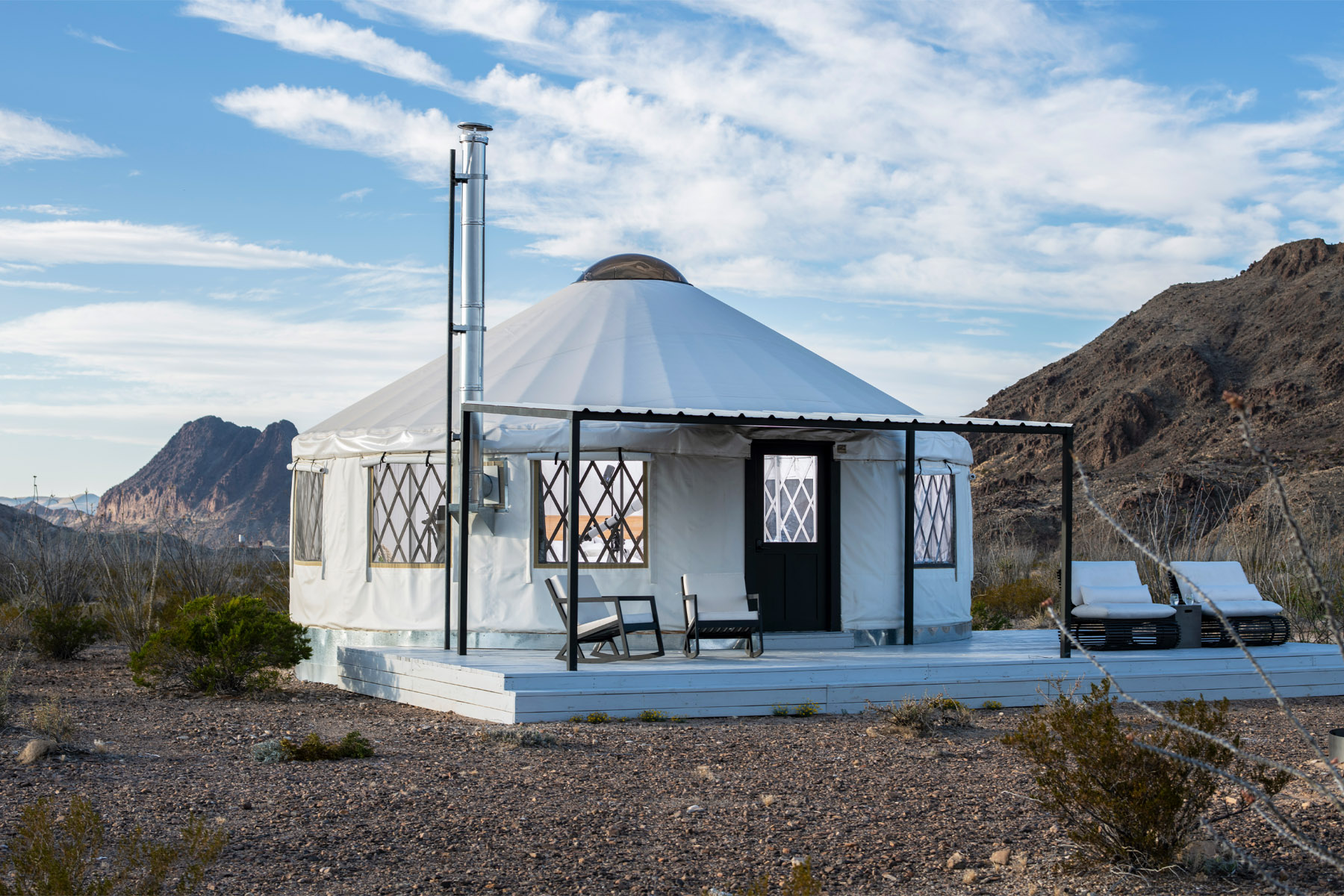
The couple spent some time near Big Bend National Park and fell in love with the area. In 2017, they bought 400 acres on the western boundary of the park to build an oasis where they could unwind and unplug. Staying in the Lone Star State was important; Baxter is a seventh-generation Texan “and very proud of that,” Venz Box says. They wanted to do something that had a light footprint on the land and settled on the idea of building yurts. Knowing that others might want to get away from it all, too, the couple built one residence for their family and four additional yurts (about 600 square feet in size) to rent out through a side business they formed called The Local Chapter. Guests have ranged from NBA stars to execs on growth teams at tech companies. “It’s cool to see who chooses it and needs the space,” Venz Box says. “It’s such an interesting foil to life online.”
The posh yurts go for about $420 a night and have a nearly perfect rating on Airbnb. They feature Texas-based products, from luxurious Sferra linens to Stori Modern outdoor furniture, with books by Texas authors on the shelves. One thing you won’t find: televisions. “We encourage people to take time to look up at the stars or sit on the porch and look out,” Venz Box says. “You can see our international border—Mexico is just on the other side of the Santa Elena Canyon; it’s pretty cool; it’s a very special place.”
Get the D CEO Newsletter
Author



